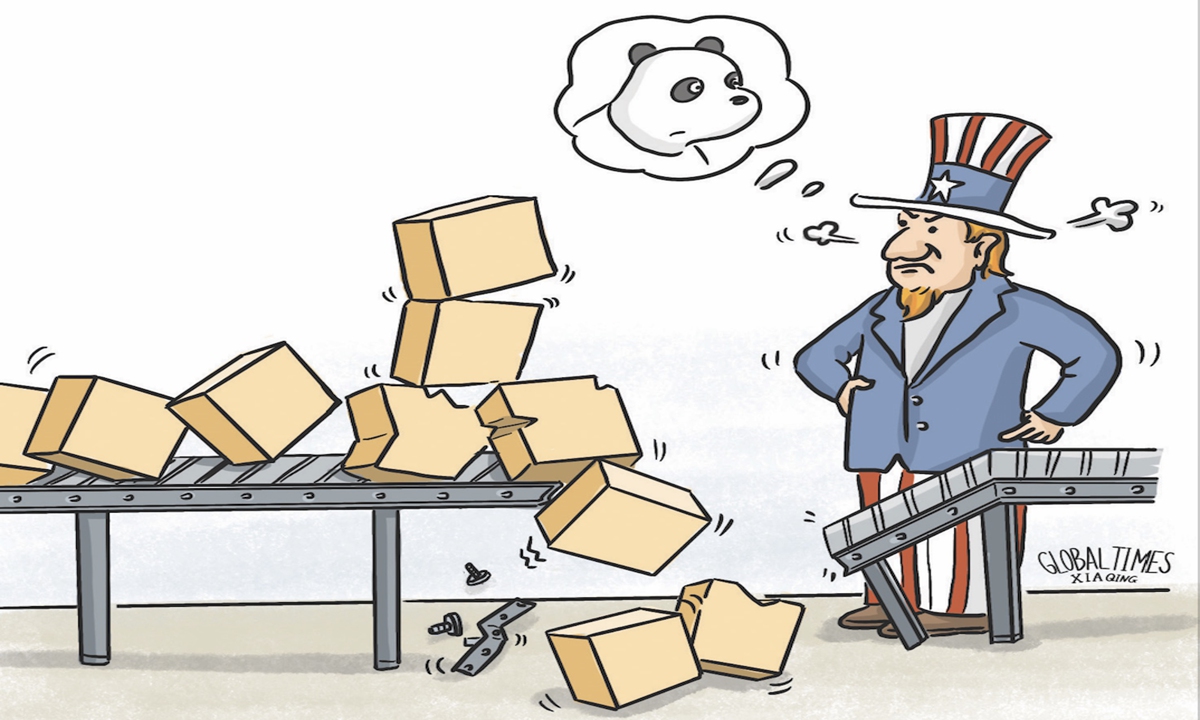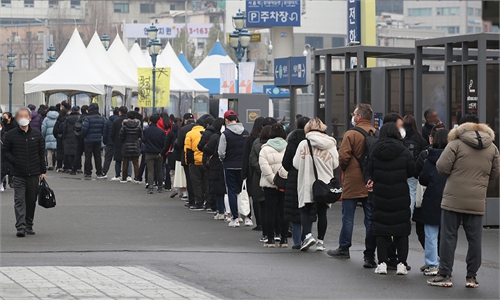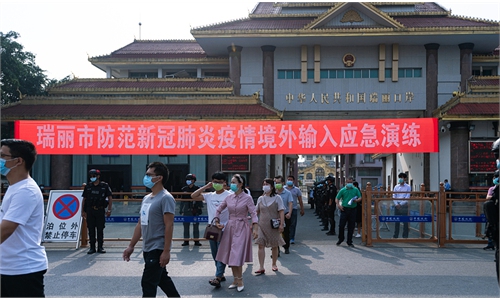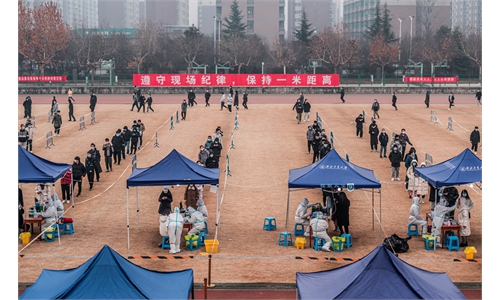COMMENTS / EXPERT ASSESSMENT
Discrediting ‘zero-Covid’ policy won’t ease US supply bottlenecks

Illustration: Xia Qing/GT
As American businesses and consumers grapple with growing supply disruptions and skyrocketing inflation amid the Omicron wave, US media outlets and institutions are busy engaged in a new round of blame, vilifying China's "dynamic zero Covid case" strategy.China's zero- Covid policy could deal another blow to global supply chain, CNBC claimed on Monday. Citing an economist from Moody's Analytics, the article said China's zero-tolerance approach "really does increase the downside risks for material improvement in supply chains".
While admitting the fact that China's coronavirus prevention measures are "highly effective," a report by The New York Times on the same day chose to play up the potential negative impact of China's anti-coronavirus policy in the worst possible scenario, drawing a conclusion that China's virus control measures could worsen supply chain woes in 2022.
The Omicron variant is raging across the world, and its impacts on the global economy and global supply chain warrant people's caution. Yet, the warnings by the US media are nothing but an attempt to continue their relentless attack on China's anti-coronavirus strategy.
Contrary to assumptions made by the US media, in fact, China's dynamic zero-Covid policy has not only enabled the world's second largest economy to achieve 8.1 per cent growth in 2021 while averting a public health catastrophe, providing the strongest support for the global economy, but also made great contribution to maintaining the stability of global supply chains.
Since the COVID-19 pandemic, the US, which is intent on decoupling with China, has attempted to woo allies and economic superpowers like India to promote industrial chain transfer from China. The results of which have demonstrated the resilience of China's industrial chain that has provided great support for the global supply chain to hedge against the impact of COVID-19.
When global manufacturing and logistics industries were severely disrupted by the coronavirus, China's zero-Covid policy led to a quick resumption of work and production in the past two years. As a global manufacturing hub, in 2021, China's goods trade exports reached 21.73 trillion yuan ($3.42 trillion), up 21.2 percent year-on-year.
Some foreign companies that moved their manufacturing to Southeast Asian countries like Vietnam to avoid Trump's trade tariffs against China, have lately moved back to China in 2021.
Admittedly, the more infectious Omicron variant has created more pressure on China's manufacturing and logistics sector, but there are positive signs that China's zero-Covid policy is helping cities like North China's Tianjin and Northwest China's Xi'an to rapidly put their latest flare-ups under control, and help factories and logistics bases in related regions resume normal operation as soon as possible.
Taking Xi'an city as an example, since the first case was reported on December 9 and the city was locked down on December 23, new infections in the city have been falling rapidly, and many districts and counties have issued notices to restore production in recent days. Thanks to the effective zero-COVID policy, China is unlikely to see severe industrial disruptions as the US media claimed.
As The New York Times reported, the US economy is indeed facing severe risks of industrial chain disruption in 2022, but the root of the problem lies in the failed economic and pandemic control policies of the US government. Slandering China's zero-COVID prevention policy will not solve the supply chain crisis in the US. The US should care for its own domestic supply chain woes by repairing seriously frayed economic and trade ties with China.
For the global supply chain, the danger caused by US political manipulation and hegemony exceeds the coronavirus impact. As the largest economy of the world, the US should take more responsible measures to join the efforts to promote global economic recovery with other major economies, rather than play a political game to always vilify China.
The author is an editor with the Global Times. bizopinion@globaltimes.com.cn



